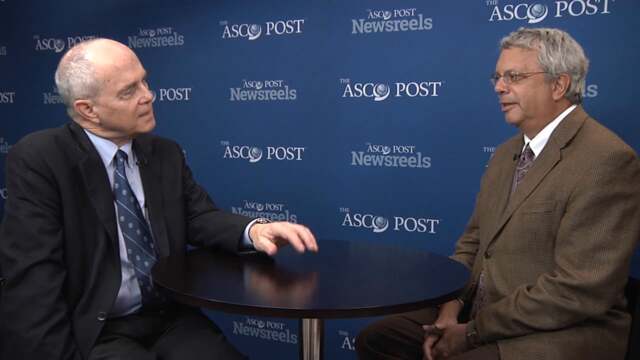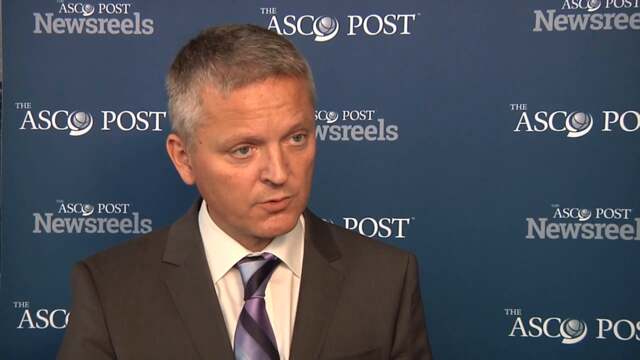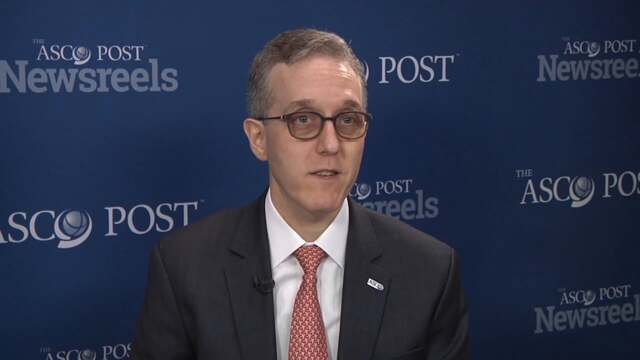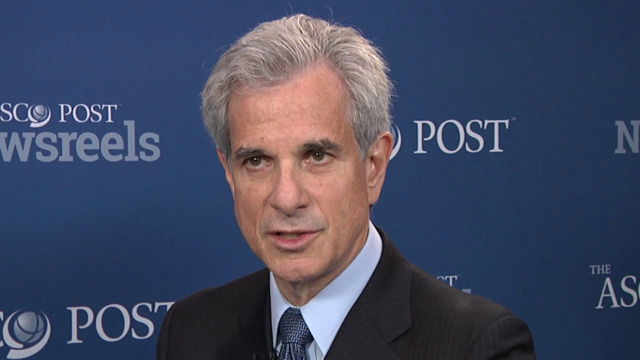John L. Marshall, MD, on Issues of Value in Colorectal Cancer Treatment
2015 ASCO Annual Meeting
John L. Marshall, MD, of Georgetown University, discusses how the cost of care affects behavior and decision-making on the part of patients and oncologists.
Christian Carrie, MD and Celestia S. Higano, MD
Christian Carrie, MD, of Centre Léon Bérard, and Celestia S. Higano, MD, of the University of Washington, discuss short hormonal therapy and radiotherapy as salvage treatment for relapse after radical prostatectomy (Abstract 5006).
Charles L. Bennett, MD, PhD, MPP and James O. Armitage, MD
Charles L. Bennett, MD, PhD, MPP of the University of South Carolina College of Pharmacy, and James O. Armitage, MD, of the University of Nebraska Medical Center, discuss the emerging and future benefits of biosimilars.
Patrick Schöffski, MD
Patrick Schöffski, MD, of the University Hospital Leuven, discusses a phase III study in which he and his colleagues found, for the first time in soft-tissue sarcomas, a significant overall survival benefit of a single agent compared to a standard treatment (Abstract LBA10502).
Jedd Wolchok, MD, PhD
Jedd Wolchok, MD, PhD, of Memorial Sloan Kettering Cancer Center discusses therapies for treatment-naive patients with advanced melanoma (Abstract LBA1).
Howard I. Scher, MD
Howard I. Scher, MD, of Memorial Sloan Kettering Cancer Center, discusses the updated criteria that will guide clinical trial design and conduct for therapeutics being tested in castration-resistant prostate cancer (Abstract 5000).





